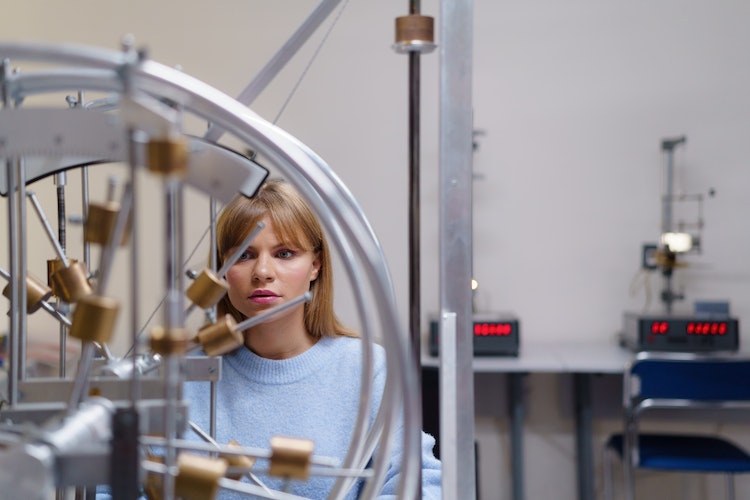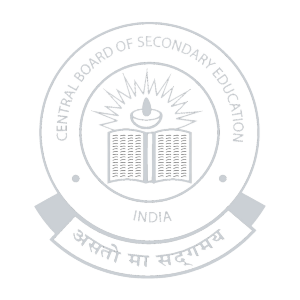Physics
Physics Classes in Bangalore
What We're All About
A strong conceptual understanding of chemistry is vital for those pursuing careers in science, engineering, medicine, and various other fields where physics knowledge is essential.

Physics Classes at Abhyāsa in Bangalore
Physics can be a challenging subject that requires a strong conceptual foundation. We will help you build a solid understanding of the fundamental principles and theories of physics by breaking down complex concepts into more manageable parts, ensuring that you grasp the underlying principles and their applications. Physics has numerous practical applications in everyday life and various fields of study. Our tutor will help you understand how physics concepts are applied in real-world situations, such as engineering, technology, medicine, and environmental science.

Our Syllabi

CBSE
- From grades 5 to 10
- Offline classes
- Reinforcing fundamental concepts
- Interactive learning
- Conceptual clarity

ICSE
- From grades 5 to 10
- Offline classes
- Reinforcing fundamental concepts
- Application based problem solving for..

IGCSE
- From grades 5 to 10
- Offline classes
- Reinforcing fundamental concepts
- Core and Extended
- Problem solving skills and Practical application

IB
- MYP, AB Initio and French B
- From grades 5 to 10
- Offline classes
- Reinforcing fundamental concepts
- Analysis and approaches (AA)
- Applications and Interpretations
Why is learning Physics beneficial?
Studying physics at school offers numerous benefits and opportunities. Here are some compelling reasons to study physics:
Studying physics at school offers numerous benefits and opportunities. Here are some compelling reasons to study physics:
- Understanding the Natural World: Physics is the science that seeks to understand the fundamental principles governing the universe. By studying physics, you gain a deeper comprehension of the natural world, from the behavior of particles at the atomic level to the vastness of the cosmos. It allows you to explore and appreciate the beauty and intricacies of the universe.
- Developing Scientific Thinking: Physics develops your scientific thinking skills, including observation, critical analysis, and problem solving. It encourages you to think logically, formulate hypotheses, design experiments, and interpret data. These skills are applicable not only to physics but also to other scientific disciplines and real-life situations.
- Problem Solving and Analytical Skills: Physics is renowned for its emphasis on problem-solving. It trains you to break down complex problems into manageable parts, apply mathematical concepts, and think creatively to find solutions. These problem-solving and analytical skills acquired through physics are valuable in a wide range of academic and professional fields.
- Enhancing Mathematical Proficiency: Physics and mathematics are closely intertwined. Studying physics helps deepen your understanding of mathematical concepts and their applications. Through physics, you can see the practical relevance of mathematical principles and develop your mathematical skills, such as algebra, calculus, and trigonometry.
- Applications in Other Disciplines: Physics has broad applications in various fields, including engineering, medicine, computer science, environmental science, and more. By studying physics, you gain a strong foundation that can open doors to diverse career paths and further academic pursuits.
- Technological Advancements: Physics plays a crucial role in advancing technology. Many technological innovations, such as electronics, telecommunications, energy systems, and transportation, rely on the principles of physics. Studying physics equips you with knowledge and skills to understand and contribute to technological advancements.
- Understanding Global Challenges: Physics helps you understand and tackle pressing global challenges, such as climate change, renewable energy, and sustainable development. By grasping the fundamental principles of physics, you can actively participate in finding innovative solutions to these complex issues.
- Intellectual Stimulation: Physics is a captivating and intellectually stimulating subject. It explores fascinating concepts like quantum mechanics, relativity, and the nature of time and space. Studying physics ignites curiosity, encourages critical thinking, and fosters a sense of wonder about the universe.
- Personal Development: Studying physics nurtures essential qualities such as perseverance, patience, and attention to detail. It cultivates a mindset of curiosity, continuous learning, and intellectual growth. These attributes contribute to personal development and lifelong learning.

Understanding the Natural World
Physics is the science that seeks to understand the fundamental principles governing the universe. By studying physics, you gain a deeper comprehension of the natural world, from the behavior of particles at the atomic level to the vastness of the cosmos. It allows you to explore and appreciate the beauty and intricacies of the universe.
Developing Scientific Thinking
Physics develops your scientific thinking skills, including observation, critical analysis, and problem solving. It encourages you to think logically, formulate hypotheses, design experiments, and interpret data. These skills are applicable not only to physics but also to other scientific disciplines and real-life situations.
Problem Solving and Analytical Skills
Physics is renowned for its emphasis on problem-solving. It trains you to break down complex problems into manageable parts, apply mathematical concepts, and think creatively to find solutions. These problem-solving and analytical skills acquired through physics are valuable in a wide range of academic and professional fields.
Enhancing Mathematical Proficiency
Physics and mathematics are closely intertwined. Studying physics helps deepen your understanding of mathematical concepts and their applications. Through physics, you can see the practical relevance of mathematical principles and develop your mathematical skills, such as algebra, calculus, and trigonometry.
Applications in Other Disciplines
Physics has broad applications in various fields, including engineering, medicine, computer science, environmental science, and more. By studying physics, you gain a strong foundation that can open doors to diverse career paths and further academic pursuits.
Technological Advancements
Physics plays a crucial role in advancing technology. Many technological innovations, such as electronics, telecommunications, energy systems, and transportation, rely on the principles of physics. Studying physics equips you with knowledge and skills to understand and contribute to technological advancements.
Understanding Global Challenges
Physics is a captivating and intellectually stimulating subject. It explores fascinating concepts like quantum mechanics, relativity, and the nature of time and space. Studying physics ignites curiosity, encourages critical thinking, and fosters a sense of wonder about the universe.
Intellectual Stimulation
Physics plays a crucial role in advancing technology. Many technological innovations, such as electronics, telecommunications, energy systems, and transportation, rely on the principles of physics. Studying physics equips you with knowledge and skills to understand and contribute to technological advancements.
Personal Development
Studying physics nurtures essential qualities such as perseverance, patience, and attention to detail. It cultivates a mindset of curiosity, continuous learning, and intellectual growth. These attributes contribute to personal development and lifelong learning.
Physics Classes
- 20 hours of guided learning
- 60 hours of offline/online classes
- In all 20 hrs over a period of 10 months
- Appx 8 hrs to 12 hrs per month
- Exam preparation
- Monitored self study work for the academic year
Exam Preparation
- Tests conducted regularly
- Discussions after every test
- Doubts clearance sessions
- 1 on 1 feedback after test
- Extensive exam practice
